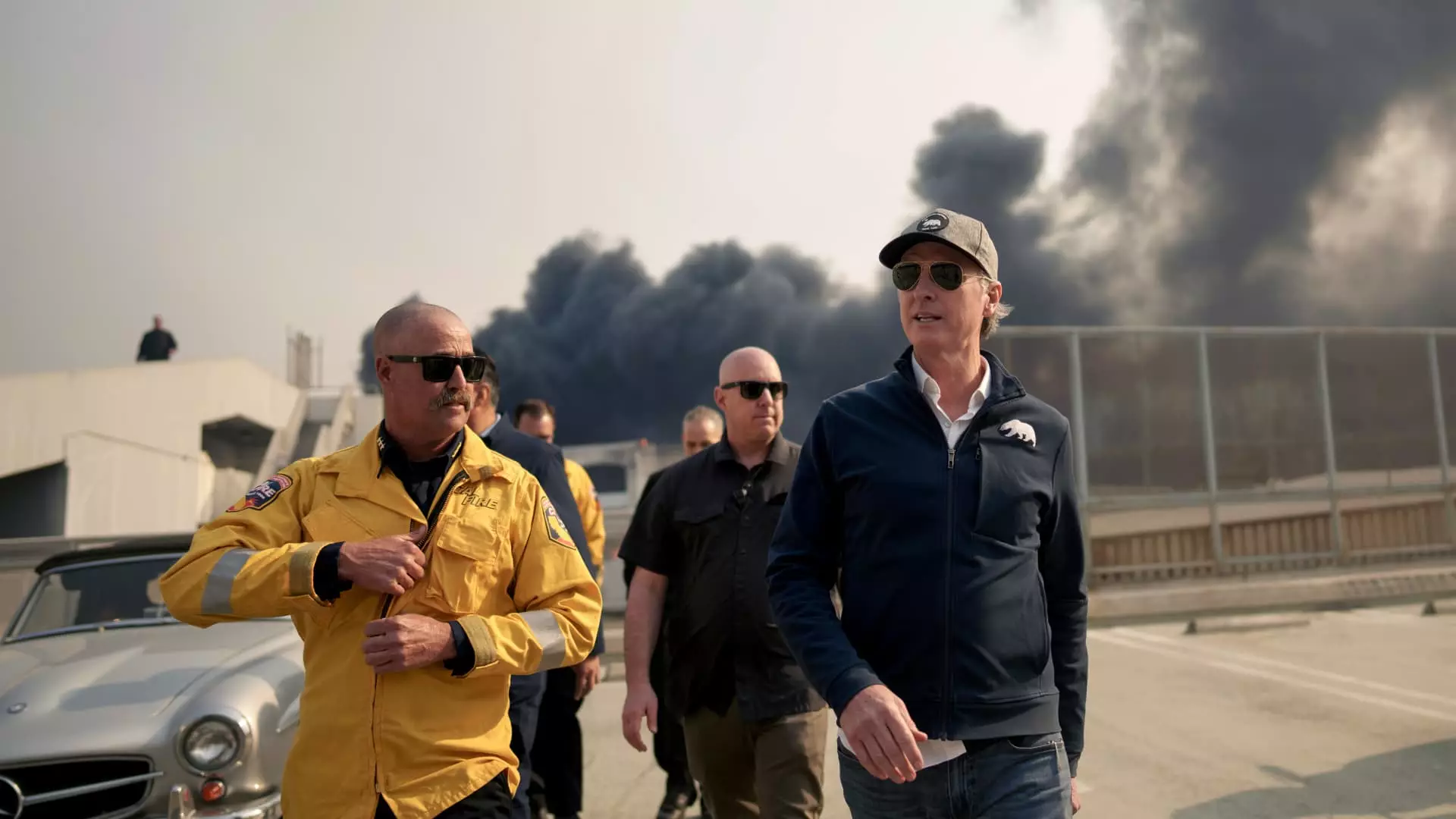The California wildfires have once again thrust the state into a spotlight of devastation and urgency, but amid the flames and destruction, the discourse surrounding the crisis has become deeply politicized. Recent comments from California Governor Gavin Newsom, directed at President-elect Donald Trump’s controversial statements regarding the wildfires, demonstrate how environmental disasters can morph into political battlegrounds. This incident highlights the potential peril of misinformation and the necessity for responsible leadership in times of crisis.
Governors in crisis often turn to federal leaders for aid, expecting support and resources to resolve dire situations. However, Governor Gavin Newsom’s recent comments shed light on a problematic relationship with Trump. In an interview with NBC News, Newsom criticized Trump’s response to the wildfires, asserting that misinformation does not serve anyone’s interests, especially during a significant natural disaster. This dynamic is particularly concerning; as communities face threats from raging fires, the focus might shift from critical recovery efforts to political blame games.
Newsom’s arguments were prompted by Trump’s inflammatory social media statements in which he criticized Newsom, President Joe Biden, and Los Angeles Mayor Karen Bass. In these posts, Trump claimed that Newsom had obstructed a water measure essential for aiding fire-stricken regions. Such assertions represent not only a misunderstanding of state water policies but also a risky leveraging of a disaster for political gain. It is this intertwining of environmental issues and partisan rhetoric that can undermine effective responses to natural emergencies.
Trump’s use of social media to assert that the governor’s actions had led to the fires illustrates how misinformation can emerge from seemingly authoritative figures and subsequently mislead the public. By promoting the idea that environmental regulations aimed at species protection were to blame for the fires, Trump diverted attention away from the more complex realities of climate change, land management, and resource allocation. Misrepresenting the relationship between environmental policy and environmental disasters is not merely irresponsible; it also has significant implications for public understanding and policy development.
Newsom countered Trump’s narrative by emphasizing that blaming the California wildfires on specific water management policies connected to the delta smelt is fundamentally flawed. His insistence on the accuracy of information reflects a desire for rational, science-based discourse on environmental issues. This is vital considering that emotional responses to natural disasters can often lead to oversimplified narratives that serve political agendas rather than true understanding.
As the wildfires continued to wreak havoc, Newsom expressed concern over potential repercussions regarding federal disaster relief. The history of Trump withholding federal assistance from states led by political adversaries raises fears about the future of federal aid in California, where the need for immediate support is paramount. Newsom remarked on previous instances where Trump denied aid to Utah, Michigan, and Puerto Rico, flagging a pattern that could leave California in jeopardy.
The possibility that fire-ravaged areas might face delays or reductions in aid not only endangers communities but also exacerbates the political strife between federal and state governments. It pushes leaders like Newsom to adopt more vocal, confrontational stances in hope of securing essential support, further muddling the already complex situation.
In a bold move, Newsom invited Trump to visit California, offering a chance for the president-elect to witness the destructive aftermath of the wildfires firsthand. This invitation underscores a critical moment—a call for unity and understanding, moving beyond political finger-pointing to confront a mutual crisis. The urgency for responsible leadership, grounded in factual comprehension of environmental challenges, could play a vital role in crafting solutions that benefit affected communities.
The complexities of climate disasters like the California wildfires push the need for informed, factual-based discourse to the forefront. As these natural crises show no signs of abating, it is imperative that both state and federal authorities adopt a collaborative approach, rooted in transparency and truth, to navigate the treacherous landscape of disaster response and recovery. Political rhetoric may resonate in media arenas; however, when lives and livelihoods are at stake, the emphasis must return to effective cooperation and community-driven action.

